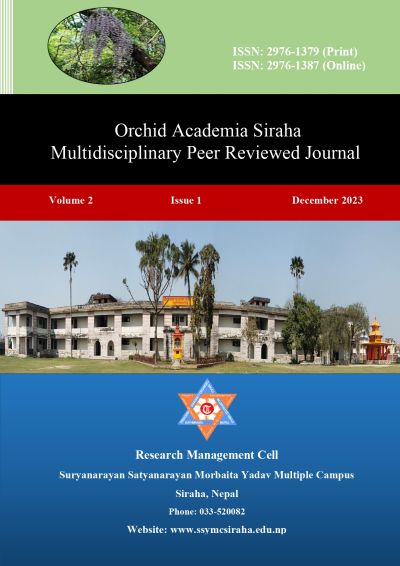Rights and Safeguarding of Children: A Qualitative Investigation in Arghakhanchi
DOI:
https://doi.org/10.3126/oas.v2i1.65601Keywords:
Child rights, safeguarding, rural Nepal, qualitative methodology, financial resourcesAbstract
In Nepal, there are many intricate issues surrounding child abuse and neglect, especially in rural areas. The objective of this research is to give a thorough knowledge of these problems that goes beyond simple information. The study uses a qualitative methodology and was carried out in Arghakhanchi. It involved two focus group discussions (FGDs) and five one-on-one interviews. The study, which takes a rights-based methodology, identifies inadequacies in child protection and takes into account the intersectionality of gender and poverty in rural Nepal. Qualitative information was analyzed by making themes, sub-themes, and categories. The study looks into a number of pieces of information that affect children's rights, including cultural norms, socioeconomic situations, and the efficiency of safety. The content that has been identified is financial resources, social values and beliefs, family dynamics, and service structures. It is found that dysfunctional homes, early pregnancy, school dropouts, exploitation, homelessness, child labor, and physical and emotional abuse are the hindrances to child rights. The findings placed a strong emphasis on community-based insight that can play a major role in defending children's rights. The ramifications go beyond guiding policy and community-based initiatives, with the goal of enhancing the general welfare of children in comparable rural environments in Nepal.
Downloads
Downloads
Published
How to Cite
Issue
Section
License
Copyright (c) 2023 RMC, SSMYMC, Siraha

This work is licensed under a Creative Commons Attribution 4.0 International License.
This license allows reusers to distribute, remix, adapt, and build upon the material in any medium or format, so long as attribution is given to the creator. The license allows for commercial use.




